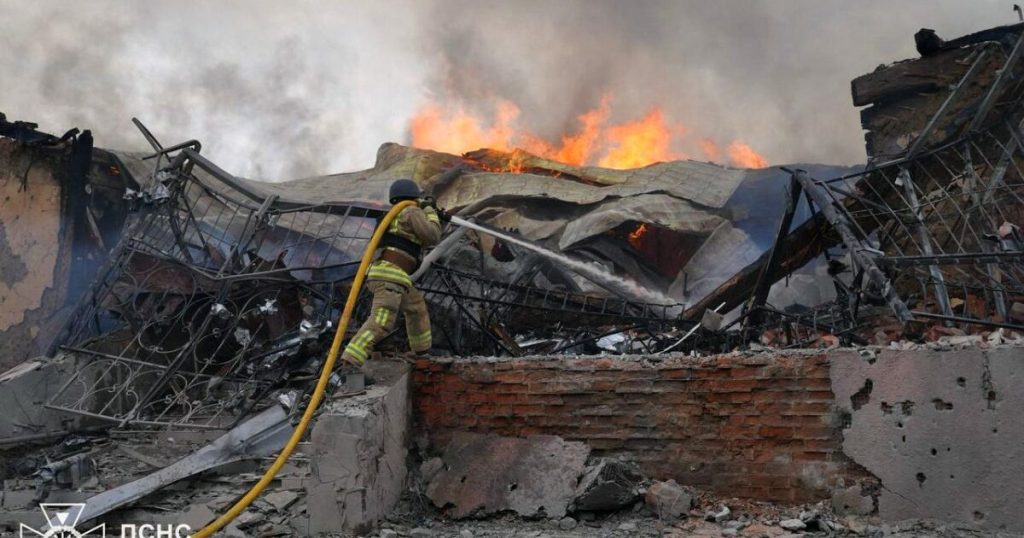The United Kingdom convened a crucial meeting of European ministers in London to address the ongoing war in Ukraine and strategize on countering Russian aggression. The gathering, involving representatives from France, Germany, Italy, Poland, Spain, and the EU, took place under the aegis of the “Weimar+” group, a coalition formed in response to evolving US foreign policy under the Trump administration. This meeting followed a significant visit by the leaders of France, Germany, Poland, and the UK to Kyiv, where they advocated for an unconditional 30-day ceasefire as a prerequisite for peace negotiations, a proposal reportedly endorsed by the United States. The primary objective of the London meeting was to reinforce European security and chart a path towards a just and lasting peace in Ukraine.
The call for a ceasefire was reiterated by key figures, including the EU’s top diplomat, Kaja Kallas, who emphasized the impossibility of meaningful talks amidst ongoing hostilities. Kallas accused Russia of insincerity and a clear intent to perpetuate the war, highlighting the fundamental requirement of mutual willingness for peace to be achieved. While Russian President Vladimir Putin proposed direct negotiations with Ukraine in Istanbul, he remained silent on the European-backed ceasefire proposal. UK Foreign Secretary David Lammy urged Putin to demonstrate genuine commitment to peace through a ceasefire and meaningful dialogue. Despite the calls for a ceasefire, reports emerged of continued Russian attacks, with the Ukrainian Air Force reporting over 100 drone strikes overnight, further underscoring the urgency of the situation.
Ukrainian President Volodymyr Zelensky expressed willingness to engage in direct talks with Putin in Turkey but did not explicitly confirm his participation if Russia rejected the ceasefire proposal. Former US President Donald Trump, weighing in on the situation, stressed the necessity of direct talks to assess the feasibility of a peaceful resolution. He urged Ukraine to accept Putin’s offer of negotiations, emphasizing the importance of determining whether a deal is possible. Trump’s intervention highlighted the complexities of the situation and the diverse perspectives on how best to achieve a peaceful outcome.
The London meeting, hosted by the UK for the first time, served as a platform to discuss further sanctions against entities supporting Russia’s invasion. The talks aimed to address both immediate concerns of repelling Russian aggression and the broader, long-term goal of strengthening European security. Lammy underscored the existential nature of the challenge facing Europe, emphasizing that the conflict transcends Ukraine’s future and directly impacts the security of the entire continent. The meeting’s significance was further amplified by the participation of high-ranking officials, including foreign ministers from Germany, Spain, and Poland, and France’s minister for Europe.
European leaders exhibited skepticism towards Putin’s proposal for direct talks, with French President Emmanuel Macron suggesting that it was a tactic to delay and gain time. Macron emphasized the fundamental principle that negotiations should follow a ceasefire, not precede it, reiterating the importance of de-escalation before engaging in substantive talks. This skepticism reflects the cautious approach adopted by European leaders, who sought to ensure that any negotiations were conducted in good faith and not used as a pretext for further aggression. The US also reiterated its commitment to ending the conflict and achieving an immediate ceasefire, underscoring the transatlantic alignment on this crucial issue.
The London meeting highlighted the unified stance of European nations and their allies in confronting Russian aggression and seeking a peaceful resolution to the conflict in Ukraine. The calls for a ceasefire, coupled with the discussions surrounding sanctions and long-term security measures, demonstrate the multifaceted approach adopted by the international community. While challenges remain, the continued diplomatic efforts and the commitment to a negotiated settlement offer a glimmer of hope for ending the war and restoring peace and stability in Europe. The focus on European security underscores the wider implications of the conflict and the need for a collective response to address the challenges posed by Russia’s actions. The ongoing diplomatic efforts represent a critical step towards achieving a lasting peace in the region.














